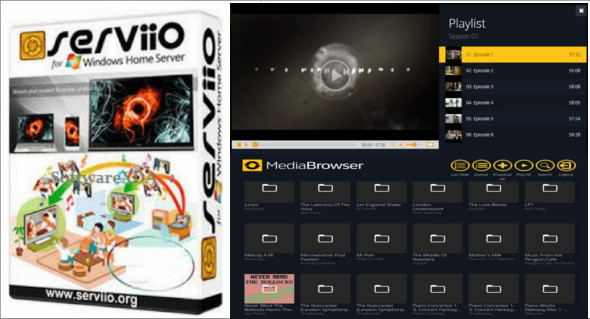

Some experience issues during uninstallation, whereas other encounter problems after the program is removed. It seems that there are many users who have difficulty uninstalling programs like Serviio from their systems. What usually makes people to uninstall Serviio

This guide is the right solution to completely uninstall Serviio without any difficulty. a TV set, Bluray player, games console or mobile phone) on your connected home network.ĭo you experience difficulty when you try to completely uninstall Serviio from your system?Īre you looking for an easy solution to thoroughly remove it from your computer? It allows you to stream your media files (music, video or images) to renderer devices (e.g. Sudo /opt/serviio-1.9/bin/serviio-console.Serviio is a free media server. Now, launch the configuration console by typing the following into the Terminal Lastly, start serviio and have it run automatically at boot via: Use your favorite text editor and create /lib/systemd/system/rvice with:Īfter=syslog.target local-fs.target network.targetĮxecStop=/opt/serviio/bin/serviio.sh -stop The first line logs in as root to make a few things easier: This will result in warnings in serviio.log, but there seems to be no ill effect. The useradd option -r creates a system account and does not create a home directory. There are various ways to install Serviio, but this installs it in /opt and runs it as user serviio. If both Java 7 and 8 are installed, you may have to adjust the default via update-java-alternatives or edit scripts to specify the full path, e.g., /usr/lib/jvm/java-8-openjdk-amd64/jre/bin/java. Openjdk-8-jre-headless : Depends: ca-certificates-java but it is not going to be installedĮ: Unable to correct problems, you have held broken packages.ĭo not despair, this command will help you:Īpt install -t jessie-backports openjdk-8-jre-headless ca-certificates-javaĪfter that, try run the previous command again.

The following packages have unmet dependencies: If Java is not installed or only Java 7, run: If openjdk-8-jre is installed and “java -version” yields “1.9.0_xx”, you are done. If you see both openjdk-7-jre and openjdk-8-jre, check which is the default version via: You can tell which, if any, versions are installed via: Install required software if not already installed: As of the newest version is Serviio 1.9ĭebian 8 (Jessie) adds back ffmpeg, so there is no need for an extra PPA. Update: If you are interested in installing the newest version than go to to see which is the newest version at the time.


 0 kommentar(er)
0 kommentar(er)
